牛津译林版八年级上册英语Unit 5 Wild animals Grammar Using may for possibility 课件(共25张PPT)
文档属性
| 名称 | 牛津译林版八年级上册英语Unit 5 Wild animals Grammar Using may for possibility 课件(共25张PPT) | 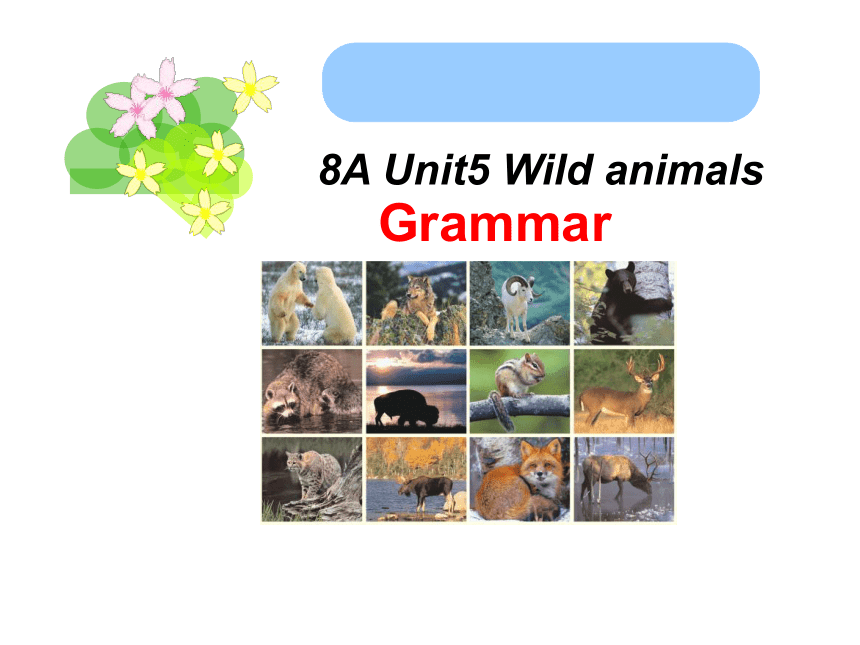 | |
| 格式 | ppt | ||
| 文件大小 | 381.5KB | ||
| 资源类型 | 教案 | ||
| 版本资源 | 牛津译林版 | ||
| 科目 | 英语 | ||
| 更新时间 | 2022-10-12 19:22:12 | ||
图片预览

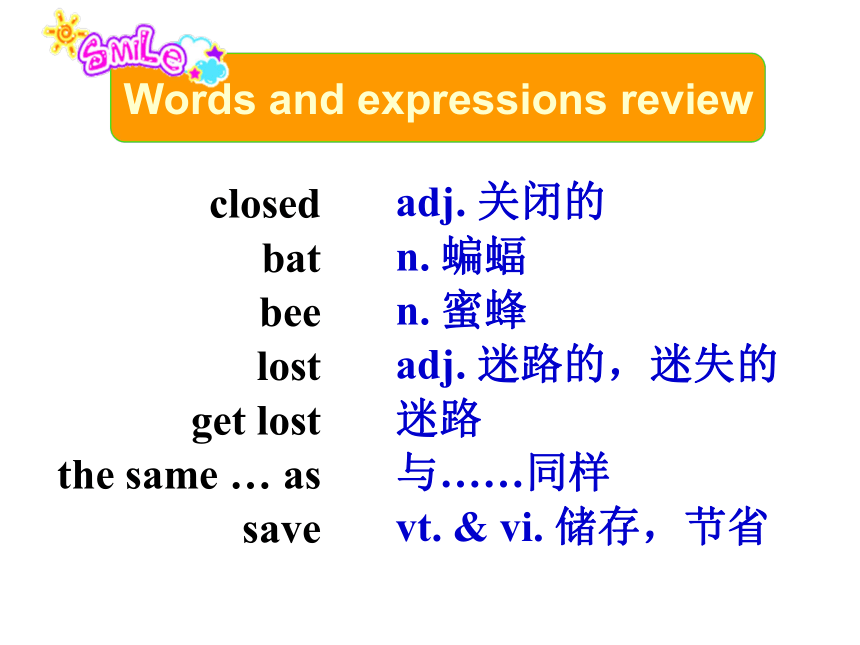
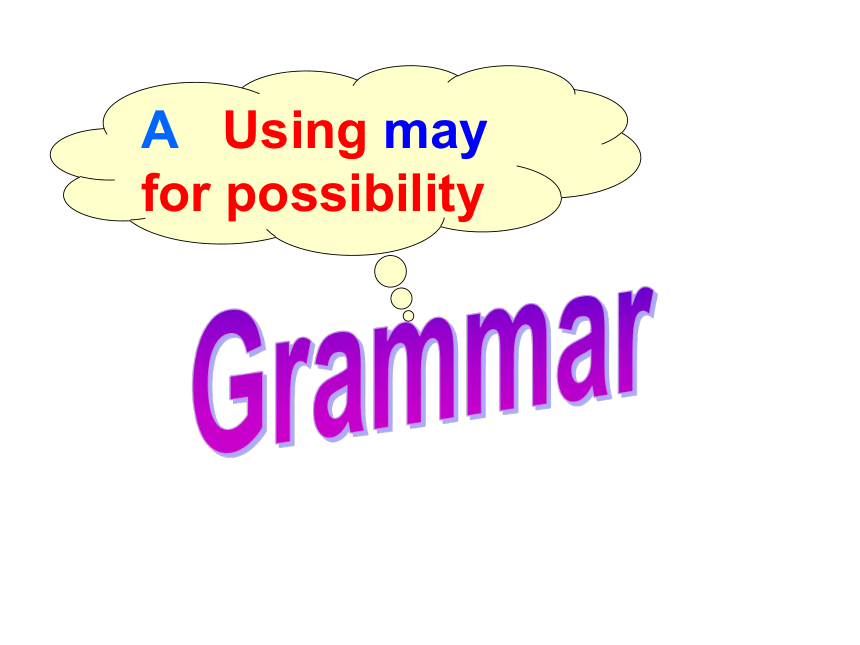
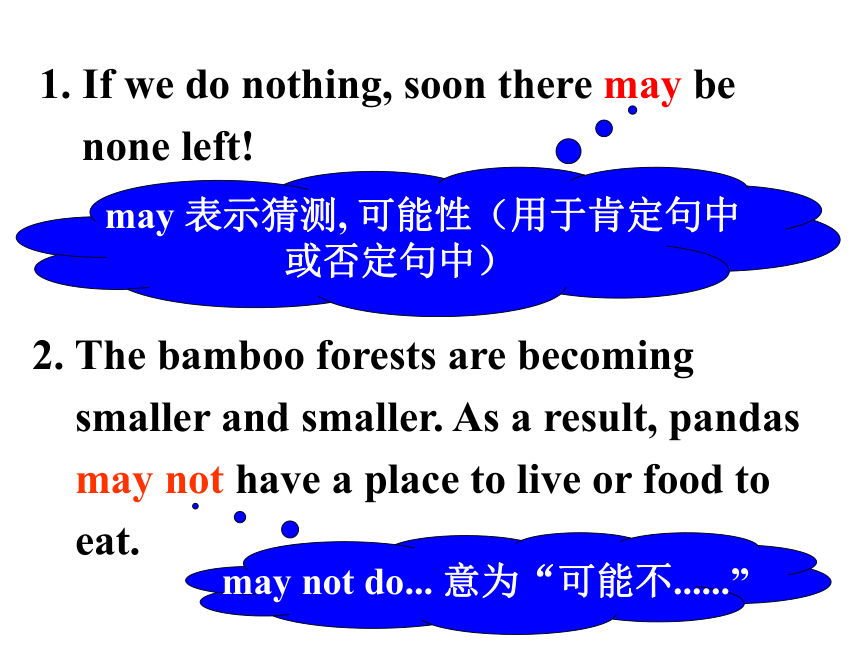
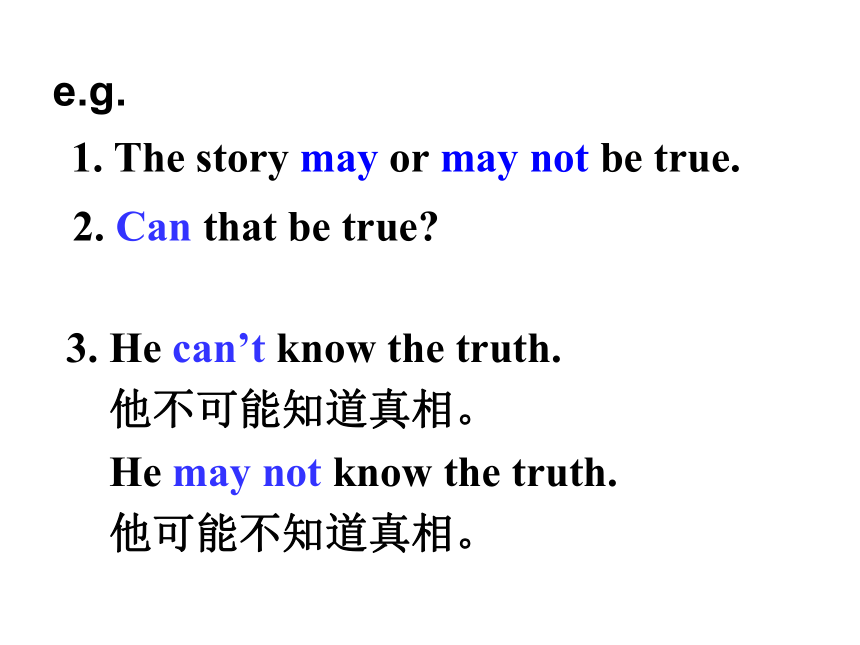
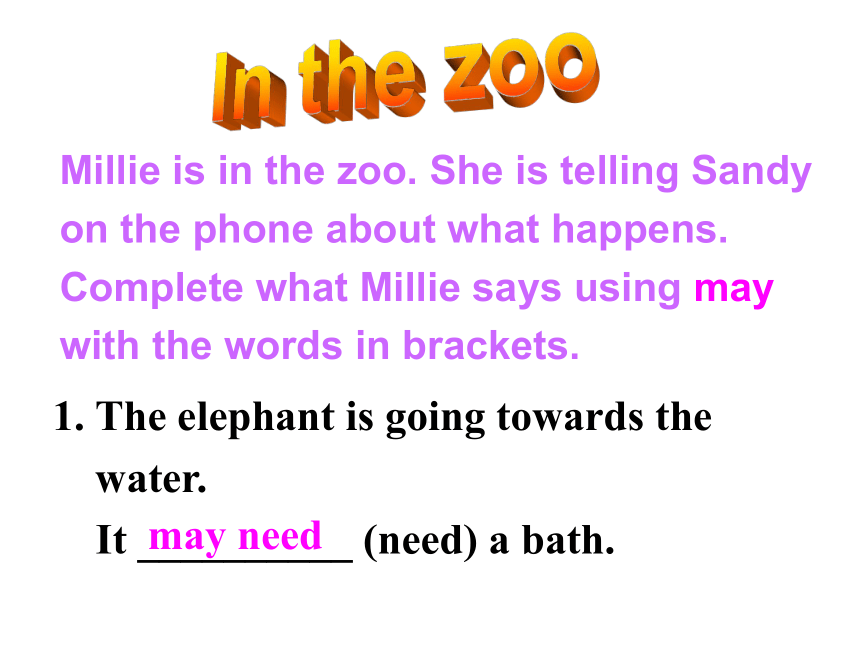
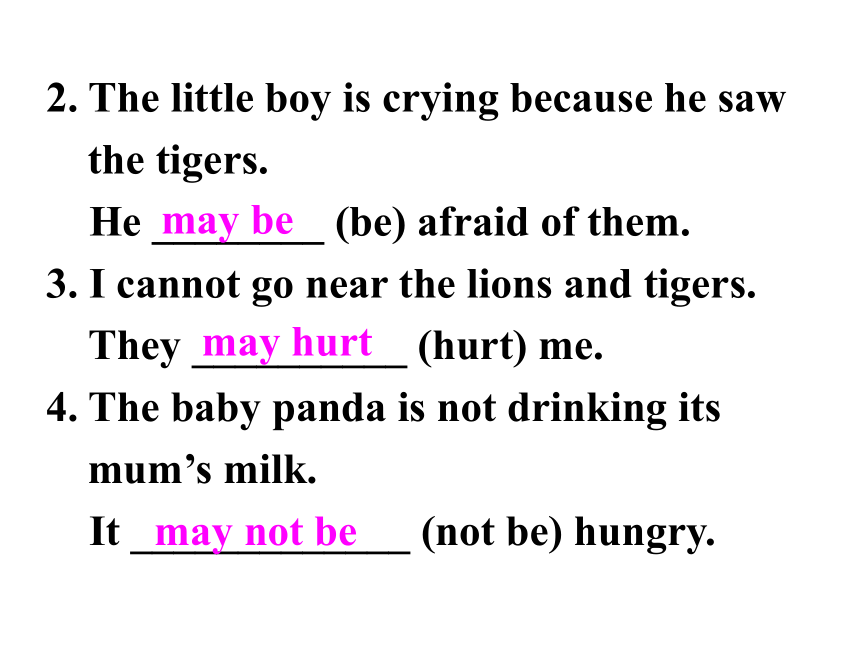
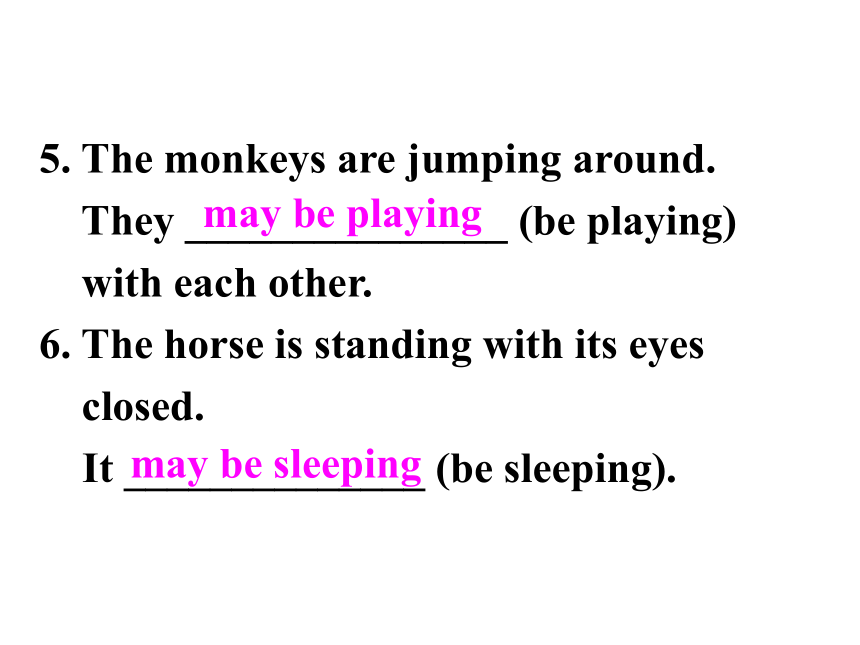
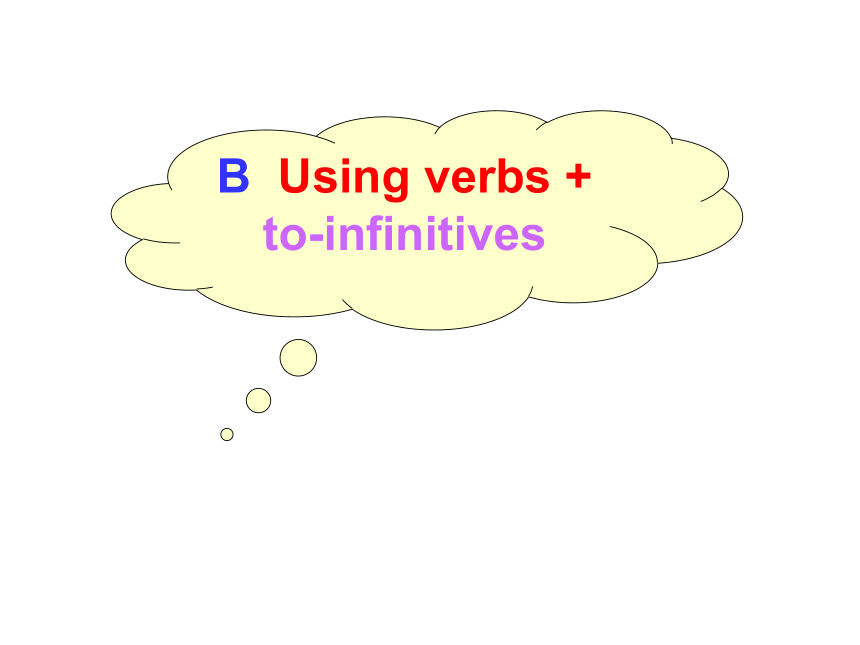
文档简介
(共25张PPT)
8A Unit5 Wild animals
Grammar
closed
bat
bee
lost
get lost
the same … as
save
adj. 关闭的
n. 蝙蝠
n. 蜜蜂
adj. 迷路的,迷失的
迷路
与……同样
vt. & vi. 储存,节省
Words and expressions review
A Using may for possibility
1. If we do nothing, soon there may be none left!
2. The bamboo forests are becoming smaller and smaller. As a result, pandas may not have a place to live or food to eat.
may 表示猜测, 可能性(用于肯定句中
或否定句中)
may not do... 意为“可能不......”
e.g.
1. The story may or may not be true.
2. Can that be true
3. He can’t know the truth.
他不可能知道真相。
He may not know the truth.
他可能不知道真相。
Millie is in the zoo. She is telling Sandy on the phone about what plete what Millie says using may with the words in brackets.
1. The elephant is going towards the water.
It __________ (need) a bath.
may need
2. The little boy is crying because he saw the tigers.
He ________ (be) afraid of them.
3. I cannot go near the lions and tigers.
They __________ (hurt) me.
4. The baby panda is not drinking its mum’s milk.
It _____________ (not be) hungry.
may be
may hurt
may not be
5. The monkeys are jumping around.
They _______________ (be playing) with each other.
6. The horse is standing with its eyes closed.
It ______________ (be sleeping).
may be playing
may be sleeping
B Using verbs + to-infinitives
1. 当句子中已经有谓语动词, 而我们又要表达不止一个动作概念时, 其余的动词可以使用非谓语形式表达。动词不定式就是动词的一种非谓语形式, 其基本形式是“to+动词原形”。 如:
He wants to play football after class.
他想课后踢足球。
My mother forgot to turn off the lights yesterday.
我妈妈昨天忘记关灯了。
注意:
动词不定式在句子中不作谓语, 因此没有人称、数和时态的变化。
动词不定式在句中常作谓语动词的宾语, 这一类谓语动词常见的有:
agree choose decide forget
hope learn like plan
prepare promise refuse
remember seem want
wish would like
注意:
动词不定式的否定形式是“not to + 动词原形”。如:
They decided not to be late again.
他们决定不再迟到了。
More about wild animals
Amy's dad is asking Amy some questions about plete their conversation with the words in brackets.
Dad: Do you know anything special about wild animals
Amy: Yes, Dad. For example, dolphins are clever. They
can__________________ (learn, work out) easy
maths problems.
Dad: What do you know about bats
Amy: Rats can't see, hut they can⑵ ______________
(decide, fly) the right way with the help of their
mouth and ears.
learn to work out
decide to fly
Dad: Did you know that bees never get lost
Amy: Yes. Bees always (3)______________________
(remember, come back)
the same way as they went.
Dad: What do you know about squirrels
Amy: They always ______________(begin, save) some food before winter comes.
Dad: Yes, but sometimes they forget where to find the food.
remember to come back
begin to save
remember to do sth. 记得去做某事
remember doing sth. 记得做过某事
forget to do sth. 忘记去做某事
forget doing sth. 忘记做过某事
e.g.
Tom, 记得课后和我们一起打篮球。
Tom, remember to play basketball with us after class.
我记得上个月写了一封信给你。
I remembered writing a letter to you last month.
stop to do sth. 停下(正在做的)事去做
(另一件)事
stop doing sth. 停止做(正在做的)事
e.g. 让我们停下来休息一下。
Let’s stop to have a rest.
不要说话。老师来了。
Stop talking. The teacher is coming.
1. enjoy
Kitty enjoys dancing.
let
The teacher lets him read loudly.
3. practise
You should practise speaking often.
We don’t use ‘to’ after these verbs.
4. make
The joke makes me laugh and laugh.
5. help
She often helps me (to) carry water.
6. finish
You must finish doing your homework
on time.
1. You must _____ (listen) to the teacher carefully in class.
2. Mary agreed _____ (go) shopping with Lucy.
3. Look! The boys ____________(play) football.
listen
to go
are playing
4. May decided ______ (buy) a book for Ann’s birthday.
5. Max tells funny jokes to make us ____(feel) happy.
6. Let’s ____ (go) on a trip tomorrow.
go
to buy
feel
7. The policeman told the boys __________ (not play) football in the street.
8. Would you like something ________ (drink)
9. _________ (not be) late for class again.
10. I plan ________(travel) around the
world in the summer.
not to play
to drink
Don’t be
to travel
11. Daniel hopes ______(be) a doctor when he ________ (grow) up.
12. I prepare _________ (clean) my room this afternoon.
13. Do you want _______ (see) a film with me
to be
grows
to clean
to see
8A Unit5 Wild animals
Grammar
closed
bat
bee
lost
get lost
the same … as
save
adj. 关闭的
n. 蝙蝠
n. 蜜蜂
adj. 迷路的,迷失的
迷路
与……同样
vt. & vi. 储存,节省
Words and expressions review
A Using may for possibility
1. If we do nothing, soon there may be none left!
2. The bamboo forests are becoming smaller and smaller. As a result, pandas may not have a place to live or food to eat.
may 表示猜测, 可能性(用于肯定句中
或否定句中)
may not do... 意为“可能不......”
e.g.
1. The story may or may not be true.
2. Can that be true
3. He can’t know the truth.
他不可能知道真相。
He may not know the truth.
他可能不知道真相。
Millie is in the zoo. She is telling Sandy on the phone about what plete what Millie says using may with the words in brackets.
1. The elephant is going towards the water.
It __________ (need) a bath.
may need
2. The little boy is crying because he saw the tigers.
He ________ (be) afraid of them.
3. I cannot go near the lions and tigers.
They __________ (hurt) me.
4. The baby panda is not drinking its mum’s milk.
It _____________ (not be) hungry.
may be
may hurt
may not be
5. The monkeys are jumping around.
They _______________ (be playing) with each other.
6. The horse is standing with its eyes closed.
It ______________ (be sleeping).
may be playing
may be sleeping
B Using verbs + to-infinitives
1. 当句子中已经有谓语动词, 而我们又要表达不止一个动作概念时, 其余的动词可以使用非谓语形式表达。动词不定式就是动词的一种非谓语形式, 其基本形式是“to+动词原形”。 如:
He wants to play football after class.
他想课后踢足球。
My mother forgot to turn off the lights yesterday.
我妈妈昨天忘记关灯了。
注意:
动词不定式在句子中不作谓语, 因此没有人称、数和时态的变化。
动词不定式在句中常作谓语动词的宾语, 这一类谓语动词常见的有:
agree choose decide forget
hope learn like plan
prepare promise refuse
remember seem want
wish would like
注意:
动词不定式的否定形式是“not to + 动词原形”。如:
They decided not to be late again.
他们决定不再迟到了。
More about wild animals
Amy's dad is asking Amy some questions about plete their conversation with the words in brackets.
Dad: Do you know anything special about wild animals
Amy: Yes, Dad. For example, dolphins are clever. They
can__________________ (learn, work out) easy
maths problems.
Dad: What do you know about bats
Amy: Rats can't see, hut they can⑵ ______________
(decide, fly) the right way with the help of their
mouth and ears.
learn to work out
decide to fly
Dad: Did you know that bees never get lost
Amy: Yes. Bees always (3)______________________
(remember, come back)
the same way as they went.
Dad: What do you know about squirrels
Amy: They always ______________(begin, save) some food before winter comes.
Dad: Yes, but sometimes they forget where to find the food.
remember to come back
begin to save
remember to do sth. 记得去做某事
remember doing sth. 记得做过某事
forget to do sth. 忘记去做某事
forget doing sth. 忘记做过某事
e.g.
Tom, 记得课后和我们一起打篮球。
Tom, remember to play basketball with us after class.
我记得上个月写了一封信给你。
I remembered writing a letter to you last month.
stop to do sth. 停下(正在做的)事去做
(另一件)事
stop doing sth. 停止做(正在做的)事
e.g. 让我们停下来休息一下。
Let’s stop to have a rest.
不要说话。老师来了。
Stop talking. The teacher is coming.
1. enjoy
Kitty enjoys dancing.
let
The teacher lets him read loudly.
3. practise
You should practise speaking often.
We don’t use ‘to’ after these verbs.
4. make
The joke makes me laugh and laugh.
5. help
She often helps me (to) carry water.
6. finish
You must finish doing your homework
on time.
1. You must _____ (listen) to the teacher carefully in class.
2. Mary agreed _____ (go) shopping with Lucy.
3. Look! The boys ____________(play) football.
listen
to go
are playing
4. May decided ______ (buy) a book for Ann’s birthday.
5. Max tells funny jokes to make us ____(feel) happy.
6. Let’s ____ (go) on a trip tomorrow.
go
to buy
feel
7. The policeman told the boys __________ (not play) football in the street.
8. Would you like something ________ (drink)
9. _________ (not be) late for class again.
10. I plan ________(travel) around the
world in the summer.
not to play
to drink
Don’t be
to travel
11. Daniel hopes ______(be) a doctor when he ________ (grow) up.
12. I prepare _________ (clean) my room this afternoon.
13. Do you want _______ (see) a film with me
to be
grows
to clean
to see
